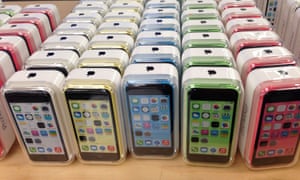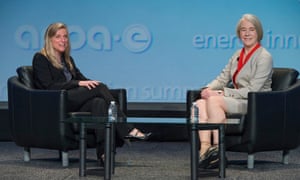New and digital media offers media institutions different ways of reaching audiences.
Consider how and why media institutions are using these techniques. (48 marks)
With the advances in new and digital media it’s easier to reach audiences and audiences can reach content easier and more efficiently. A massive change in the media landscape creates a symbiotic relationship, whereby audiences influence institutions and vice versa. The case studies this essay will primarily focus on is the music industry, in particular ‘Tidal’ a music streaming app created by hip-hop entrepreneur Jay-Z, the music industry overall and the news industry and the decline of newspaper sales.
With the dramatic decline in the newspaper industry, institutions are forced to reach the target audience. It is noticeable that many newspapers have moved digitally online, such as The Independent, which is a big British institution and no longer sells paperback newspapers. Also,The Sun which 10 years ago used to sell 3 – 4 million copies a day has gone down to 1.6 million. The most significant figure is from The Guardian which has gone down to selling 200,000 copies a day in comparison to 20-30 million a couple years ago. As many newspapers have moved online it is also significant to notice that there is a decline in the music industry. For instance, figures show that in 1999 to 2009, the amount of records sold in stores has gone from 14.6 billion to 6.3 billion. This is a massive drop and displays that there is not as much hype and excitement to by records in store when you can stream and download them online.
There are many new methods to access news more efficiently and with the ‘technical convergence’ it’s easier through our smartphones especially. Also, there are many news apps, such as ‘Mail Online’ and ‘The Guardian’ and anybody with a tablet our smartphone can access it. It’s normal to question how institutions still make money; this is done through advertising and the invention of paywalls, paying a monthly subscription fee to access the newspaper online in order to receive the best articles and stories. American TV producer and former Journalist, David Simon who wrote the book ‘Build The Wall’ stated how paywalls are a good thing and encouraged institutions to keep paywalls up. David Simon demonstrated his passion for paywalls as his theory was that institutions with paywalls are delivering top quality news.
Furthermore, social media is a fundamental method for institutions to reach their core audience. The idea of ‘News of the Tweet’ which is receiving news from Twitter is most prominent as many newspapers have Twitter accounts delivering news articles, this drives traffic to institutions and it’s prime to recognise that the audience trust verified Twitter accounts and well-known institutions such as the BBC. Twitter has changed the dynamic of news and encourages the idea of a symbiotic relationship, where there is an exchange between the audience and institutions. People are free to challenge and debate/discuss the news on social media and some news accounts may reply back to audience members. The issue for debate is whether or not the news can be trusted as the idea of citizen journalism is more apparent.
‘Citizen Journalism’ is the idea where the audience creates the news and social media is used as a function to help spread news quicker. With this news brands are losing trust as it’s hard to know which news is reliable or not. Citizen journalism has been implemented through the #BlackLivesMatter campaign which was created in 2012 as an international activist movement originating in the African-American community after the death of Travyon Martin, where he suffered police brutality. This created much awareness on social media and was a way to gain justice which was needed. Social media is a quicker way to reach a larger target audience. Audiences are now driving the news agenda and many cases of police brutality have been made more prominent. For instance, the Eric Garner case which was recorded on a camera phone was immediately uploaded on social media; this is a method of user-generated content. This links to the theory of ‘hypperreality’ as the style of the footage recorded was taken on a shaky camera phone helps to make it more realistic and a serious issue which needs to be addressed. The idea of Galtung and Ruge’s ‘News Values ‘reinforces the element of familiarity, how close to home the issue is and how negative it’s portrayed makes it a case which needs to be addressed.
The idea of pluralism is crucial to consider and it proves there is an open exchange of sharing ideas, especially on social media. There is that equality of power between news institutions and audience members. There are many methods of reaching the audience; however the power and choice lies with the audience as institutions make the audience feel like they have authority too. The theories of Marxism and Hegemony are useful too as they give alternative interpretations to news as they prove how the nature of the media is not changing. For instance, the 2015 elections proved this as many people on Twitter were saying how David Cameron had no chance of winning the elections, in the end he won and many right-wing newspapers supported this idea. This proves that institutions have a mass impact, they also have the power to remove any hateful, negative comments on their online articles and this makes the audience consider whether or not they do have the freedom to challenge.
In terms of the independent case study being analysed, the music industry is slowly declining when it comes to selling records in store. Music streaming apps such as “Tidal” have taken over, with competitors such as Apple Music and Spotify; Tidal can be downloaded on any app store and has a monthly subscription fee between £9.99 - £19.99 depending on the type of service you want. The service has over 25 million tracks and 85,000 music videos and offers a wide variety of genres. Tidal makes it easier to access music compared to ten years ago when people would buy CDs. As Tidal is referred to as a "luxury hi-fi music streaming service" the demographic would be an ABC1.Teenagers are the more focal part of the target audience as they would be more up-to-date with new music and interested in discovering new types of music as TIDAL includes all genres. In terms of digital revolution, users are streaming music from their mobile devices by the app instead of buying records. Also, cultural convergence, Tidal is providing all genres of music to target a wide audience. Social media was sued top promote the a there are pages on Twitter, Instagram and Facebook and when Tidal was first launched, many music artists put an aqua blue Twitter header up to show support for Tidal as that in the theme colour. Also using the hashtag #TIDAL many twitter users joined after exploring that hashtag and finding out what it's about. Social media beneficial as it promotes the service as evidentially the hashtag became a worldwide trending topic. By creating an app, rather than using an internet desktop to use Tidal this has encouraged many users to join as it's more efficient to use. It’s easier to stream music wherever, whenever as it's cross-platform and is also available in many different languages.
To conclude, intuitions ultimately have the control as their main motive is monetary-based. Social media plays the biggest role in reaching wider target audiences, especially with the main themes of news and the music industry. Institutions can be seen as ambiguous in terms of allowing the audience to question and challenge the news they receive, as ultimately institutions have the power to remove content. The idea of a “million monkeys” typing behind keyboards also proves not all news is reliable and not to trust everything you read and believe online unless it’s from trusted and verified news institution. The music industry has made is much easier to access music from anywhere but some argue this takes away the “classic” idea of owning a sentimental CD, which loses the value of good music which is being released , as music can be downloaded and streamed illegally. The censorship on music and news is much be liberated and makes it questionable whether the audience really do have the same power as institutions.






